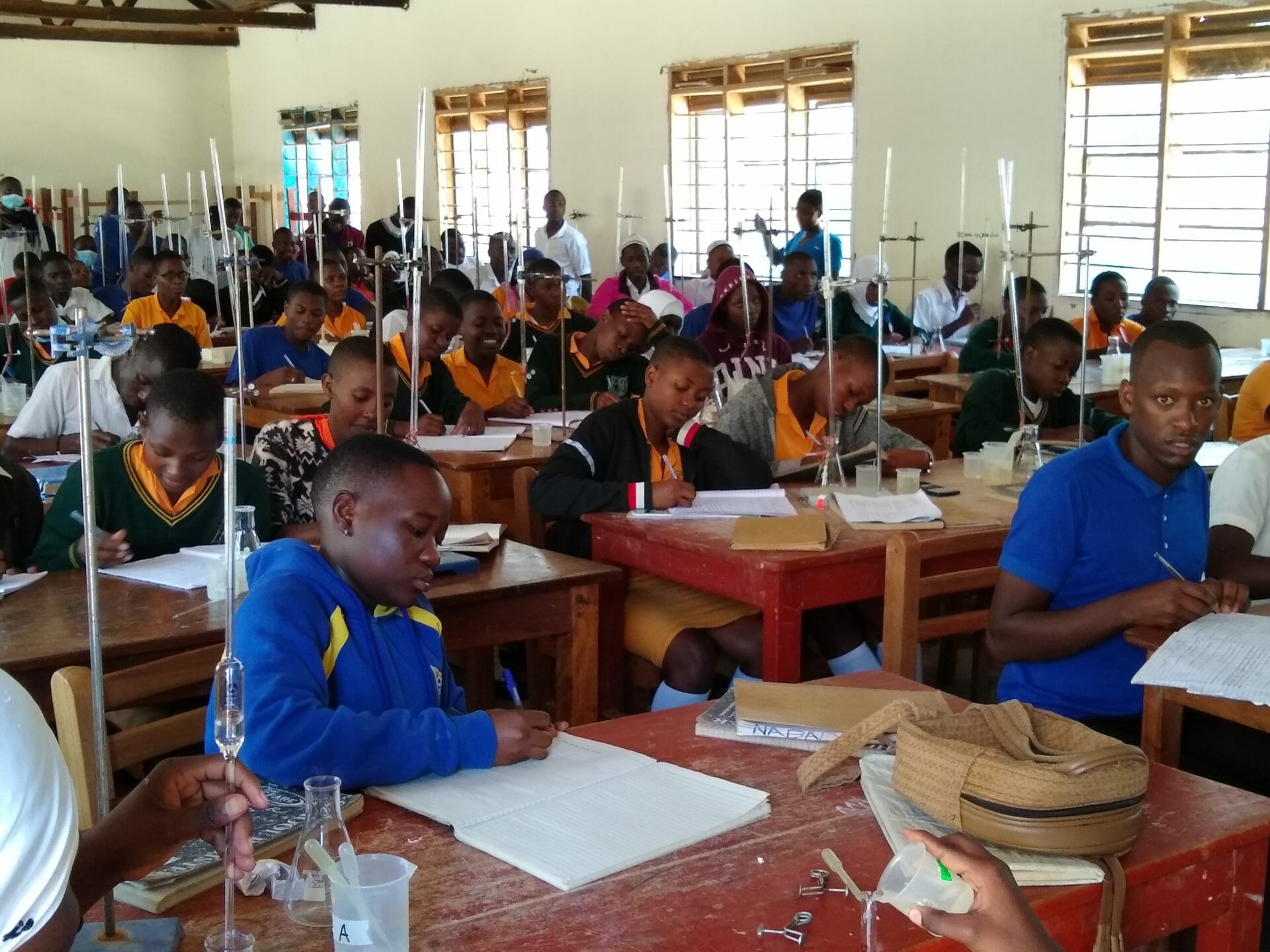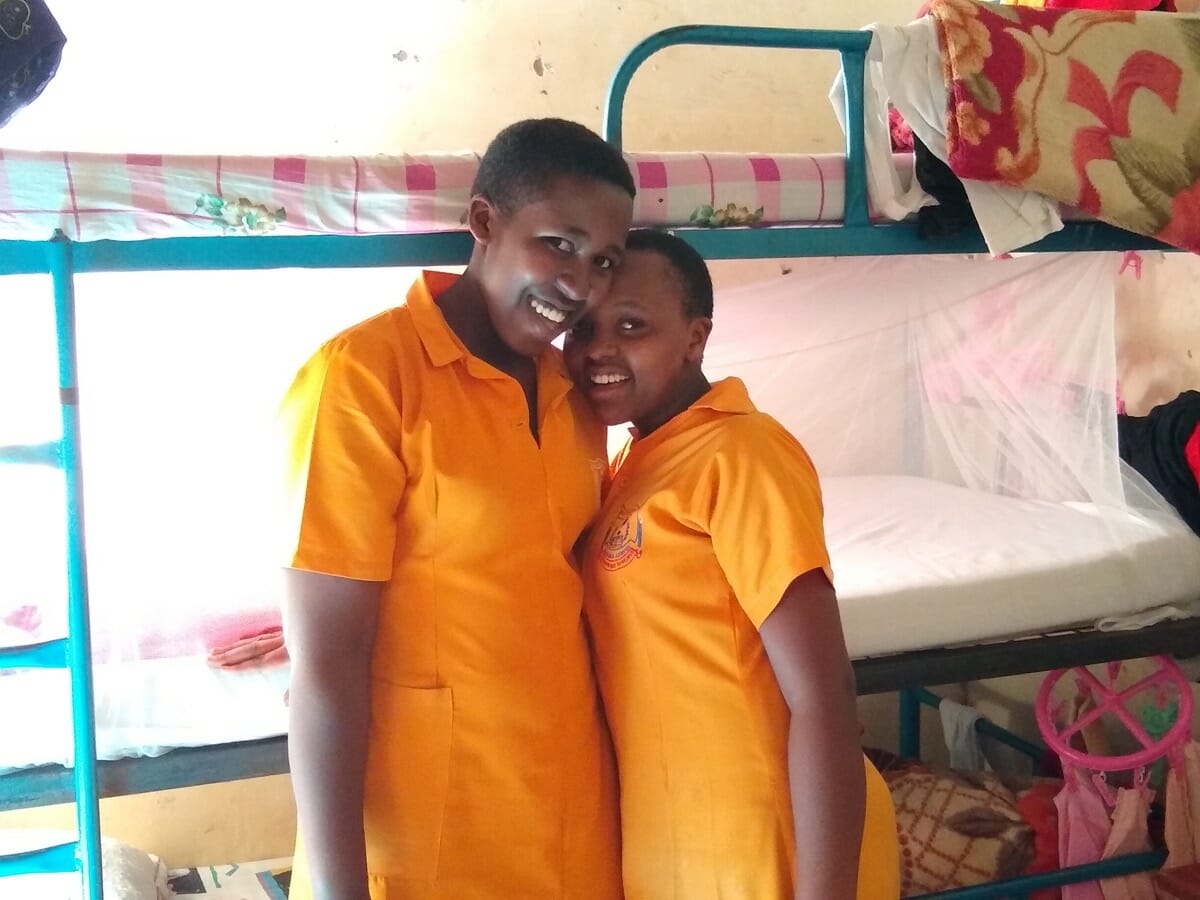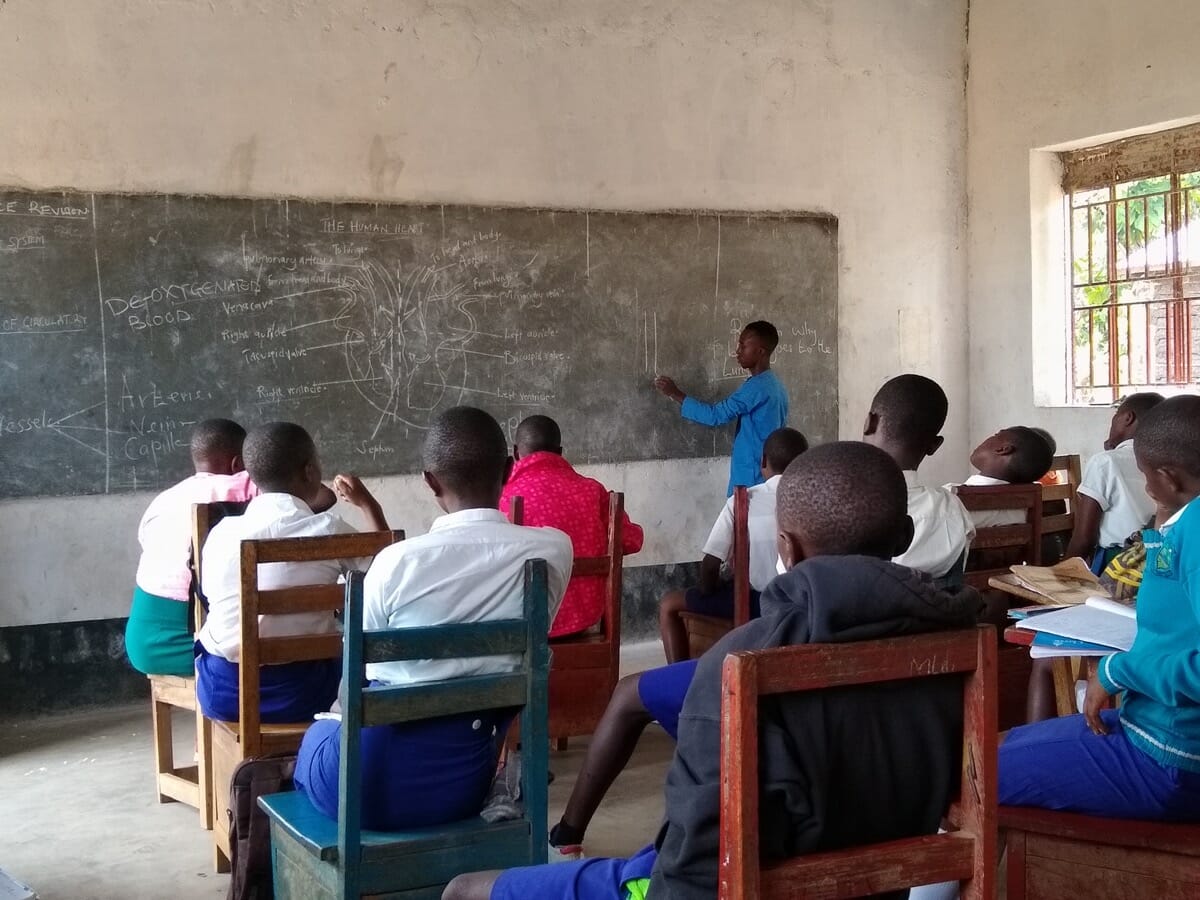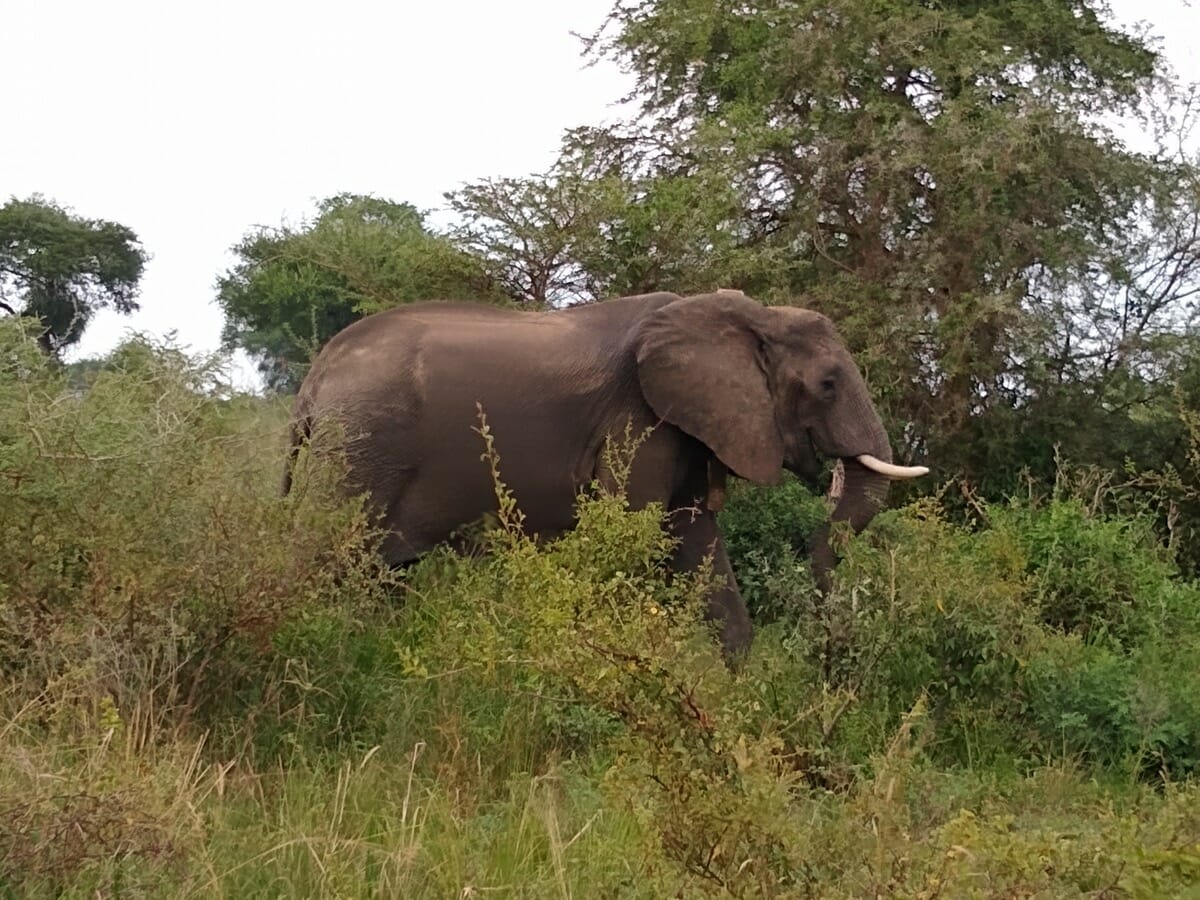Uganda Reflections & Shifting Perspectives
By Krystal White, Middle School Math Teacher
In 2021-2022, Krystal White was the recipient of the Rivinus Memorial Summer Sabbatical Award, an award established in 1987 by the Parents Association of Country Day School for the purpose of providing a faculty member or administrator the opportunity to engage in cultural or academic pursuits to broaden their educational experience to better serve the students of MICDS. Krystal chose to go to Uganda, Africa, in partnership with the Uganda Humanist Schools Trust, a non-profit organization that provides education to children of impoverished backgrounds.
 People keep asking me, “How was your Uganda trip?” and, frankly, I struggle to find the words to capture how transformational it was in terms of shifting my perspective on the world, on fostering even more gratitude for the life I lead, and how inspiring people are in their response to incredible adversity. Each Ugandan person I met exuded joy for life and tremendous concern and thoughtfulness for others, and I became a better person because of them.
People keep asking me, “How was your Uganda trip?” and, frankly, I struggle to find the words to capture how transformational it was in terms of shifting my perspective on the world, on fostering even more gratitude for the life I lead, and how inspiring people are in their response to incredible adversity. Each Ugandan person I met exuded joy for life and tremendous concern and thoughtfulness for others, and I became a better person because of them.
I have three key focus areas for my personal philanthropy dollars and time: poverty eradication, women’s empowerment, and education. The intersection of these led me to the Uganda Humanist Schools Trust (UHST), a non-profit organization working with schools in rural Uganda with the goal of providing excellent education to children of impoverished backgrounds. Visiting and interacting with these schools after the two-year COVID shutdown was the focus of my trip.
The education system in Uganda is very dissimilar to ours in the United States. In Uganda, education is a privilege, not a right. Free government schools educate up to Primary 7 only (the equivalent of seventh grade here in the U.S.). Additionally, government schools are not available in all communities and are not equipped to teach all students. Most families instead pay private school tuition for their child’s education. In rural communities, the school fee expense is proportionally very large to their overall income, and many families choose one child to get an education or, alternatively, send multiple children to the lower grades only and then, when the children are old enough to work, send them out for employment instead.
I had the immense privilege of seeing Mustard Seed Primary and Secondary Schools, Isaac Newton Primary and Secondary Schools, Eagle’s Nest Primary School, New Hope Primary School, and Katumba Parents’ Primary School during my month-long sabbatical. I met the students, teachers, and school directors, explored the campuses of each school, and observed multiple lessons at a variety of grade levels. I also had the honor of teaching math in Primary 7, Senior 1, and Senior 2 classes (equivalent to seventh, eighth, and ninth grade in the U.S.).
Many of the schools are incredibly under-resourced. In some schools, furniture was limited, buildings were haphazard in their construction, and textbooks were few. One school held all its classes outside under a large tree! MICDS is a magnificent campus under normal circumstances, but it seemed an oasis in comparison to the Ugandan schools I visited.
The largest class I taught had approximately 150 students in one large room with a single chalkboard. Providing one-on-one assistance was nearly impossible in that environment—there were so many learners and not enough time—so the students work hard to assist each other in the learning process. There were no disruptions or classroom management issues in any of the classrooms I observed; it was clear that the students valued their education highly and were not willing to sacrifice any part of it to side conversations or distracting commotion.
The large class sections did not limit the high quality of education in the classrooms themselves. The pedagogy was engaging and sound, and the test results speak for themselves: all schools I visited are incredibly highly ranked in their districts. Isaac Newton Secondary School, in particular, has stellar science scores in comparison to the national average.
Many of the families choose to board their children rather than keep them at home. I was surprised by this—children as young as age five were in boarding school—but the students explained several reasons to me why boarding was so important.
By boarding, the students did not have to walk multiple kilometers to and from school each day. Some commuting students walked 1.5 hours to school—starting out before daylight and still arriving late to school each day—and then had to walk the 1.5 hours home afterward. Most families in Uganda do not have their own transportation, so the students had to walk, and the amount of time spent traveling was a large portion of their day. Their chore load is also notably diminished while at school; many children spend significant time acquiring water for their families when at home.
Additionally, the walk to and from school is not guaranteed to be physically safe. Girls, especially teenage girls, had significant worries about their own safety, and they much preferred to board at the school where they felt protected. Multiple female students became pregnant during the two-year school shutdown and were unable to return to school as a result.
Electricity is available at the school. If a student wants to do a homework assignment, then she needs to complete it during daylight hours or at a place with electricity. Most homes in rural Uganda do not have electricity, and most daylight hours are spent at school or in transit to and from school. As a result, commuting students struggle to keep up with their assignments.
Classes in Uganda are taught in English, and the assignments are in English as well, but English is not the primary spoken language of Uganda. Coupling that language constraint with the limited education parents may have received as children meant that most parents are unable to assist their children with assignments at home. Parents prefer for their children to stay at school 24 hours a day so that the students can practice their English and ask questions of their teachers and classmates, as needed, about the content.
Boarding students are guaranteed to be fed breakfast, lunch, and dinner. At each school, students shared about individuals in their community dying due to starvation, because the previous year’s harvest had been poor. Having guaranteed meals for their children is a great reassurance for parents, and many children are on scholarship, which means the families themselves do not have to pay for their child’s meals, room, or books.
The students convinced me that, given the set of circumstances, boarding school made the most sense, and I understood why families sacrificed so much to send their children to boarding school. My own family provides full boarding scholarships to multiple Ugandan students, and, at only $500 for a full year of tuition, room, and board, it was an easy decision on our part to contribute in that way.
As part of our connection with the different schools, our group was often invited into the homes of the children. The grandmother of two students, Harriet and Gideon, invited all of us into her single-room home, which was approximately 10×6 ft., with no furniture, dirt walls and floor, and with only a single decoration: Gideon’s kindergarten certificate. The grandmother presented to me and our group a handwoven basket, which represents all the love and care we’ve shown her grandkids. It was a very touching and emotionally overwhelming moment. I thought I was going to Uganda to give to them, and yet the beautiful people of Uganda kept giving to me.

Outside of my work with the schools and students, our group was able to participate in what many Americans travel to Uganda to do: go on Safari. The Ugandan government wisely spread out the Big Five safari animals (lion, leopard, rhino, elephant, and African buffalo) in different parks all over the nation, which meant that individual parks were less crowded and conservation efforts have improved. To watch giraffes walk along the savannah at sunset, hear hippos outside my cabin at night, witness a trio of lions taking down a baby buffalo, and see a leopard in a tree were moments straight out of a David Attenborough special. Queen Elizabeth National Park was a near perfect visual match to the opening scene of the Lion King. Zebras trotting on the side of the road was a normal occurrence, and encountering a 60-year-old bull elephant with enormous tusks still intact was almost otherworldly. The Ugandan government quickly realized how safaris serve as an economic generator, so they have contributed sizable efforts toward conservation endeavors. You can pay for a personalized ranger to lead your tour, tracking and spotting the animals, and taking you directly to them. The guide shares facts about the animals, and the conservation and education efforts they’ve made for the nation and local communities, along with the anti-poaching efforts they have implemented. As a person who spends my vacations in U.S. national parks, being able to explore another nation’s natural parks filled my soul.
I emerged from my month-long professional development opportunity with a deep appreciation for the people of Uganda and a desire to continue connecting with the students, teachers, schools, and communities there.
I remain in communication with one of the math teachers at the Isaac Newton school, and he invited me to teach in his class. Despite technology and time zone challenges, I hope that we can keep that connection alive and perhaps partner with our combined classes in some way.
I am incredibly grateful to MICDS and the Rivinus Summer Sabbatical for this growth opportunity!
















































